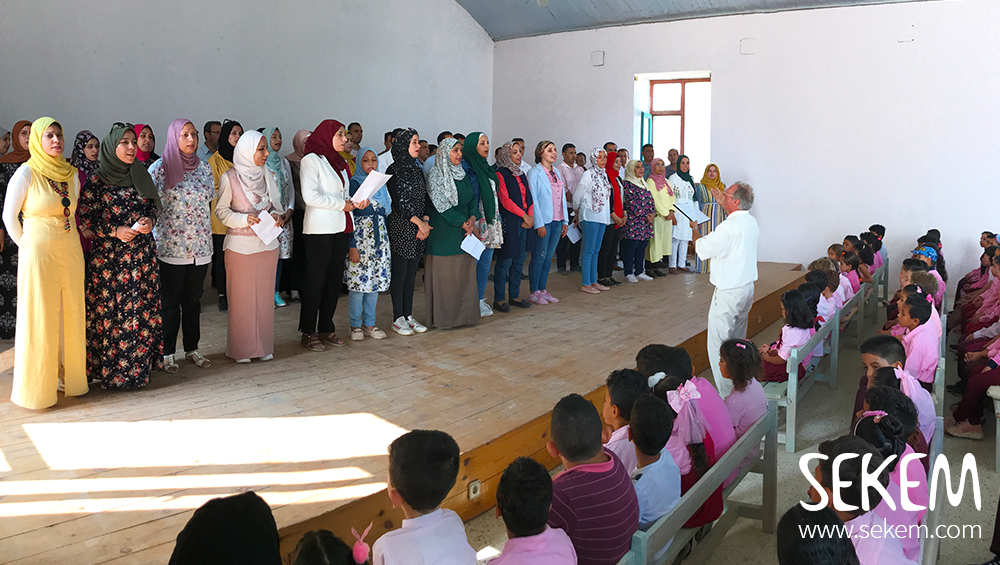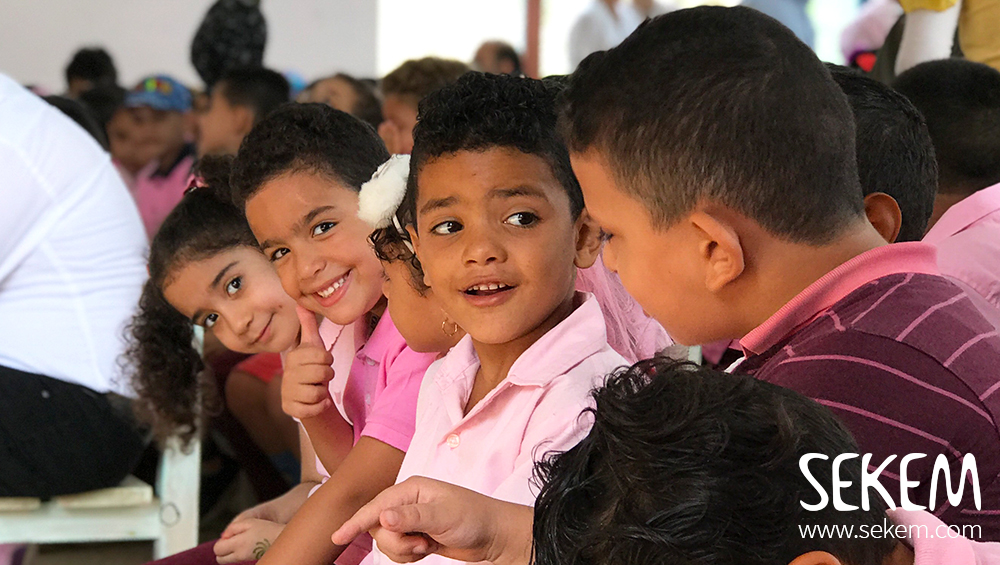Last Thursday the 29th of August, SEKEM celebrated the first day back to school and welcomed the new pupils. Unfortunately, still not every child in Egypt has the opportunity to go to school.
By modern and holistic educational approaches, SEKEM School wants to offer students space to develop their individual potentials. The curriculum is strongly influenced by the Waldorf education that puts the students development at its center. Besides the classical subjects in the traditional governmental schools, the children get to develop useful skills that help them to lead sustainable lives and be in unison with nature. Hence, for instance they learn to work with clay and wood, do handwork, gardening, as well as painting and music lessons. At the end of the week, the pupils showcase parts of their cultural activities during the school’s weekly celebrations. “Through the personality formation and the integration of handicraft and art into the curriculum, the pupils develop the love to learn something new in order develop themselves,” explains Gamal El-Sayed SEKEM School Director.
The individual in the holistic vision
The school’s system takes into consideration the pupils’ individual characters and personalities as well as their age needs. Respecting their individual natures helps shape each one into their own best unique self and unfolding their individual potential. This requires a special effort and training of the teachers too in order to convey the SEKEM way of education. Therefor, they attend trainings as well and work on their personal development.

SEKEM’s programs against illiteracy
But not all children have the opportunity to visit school. There are those who were less fortunate and who are forced to leave education to earn a living. According to UNESCO, in 2017 more than 28 percent of the over 15-years old and more than 11 percent of the 15- to 24-year-olds were illiterate. Hence, SEKEM offers several programs to combat illiteracy. The Chamomile Children Program supports children that were forced to leave school, by providing them with education alongside paid work accompanied by social workers. And, SEKEM organizes literacy courses for people from the surrounding area as well as for the people living in villages all over Egypt that SEKEM is associated with by its contracted farmers.
SEKEM wants to support Egypt in totally eradicating illiteracy and change the countries educational model to that extent that by 2057 individual potential unfolding stands at the center of all educational institutions and activities.
Nadine Greiss
Read SEKEM's Vision for 2057
Get to know Tamer Badr, teacher at the SEKEM School

